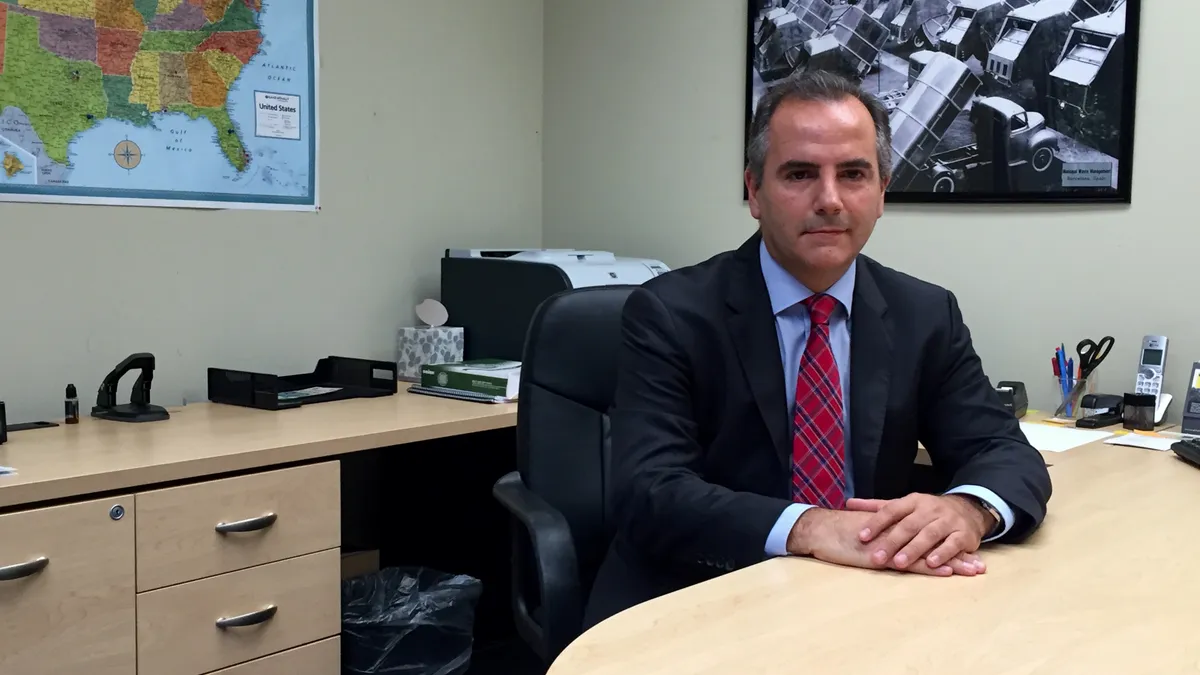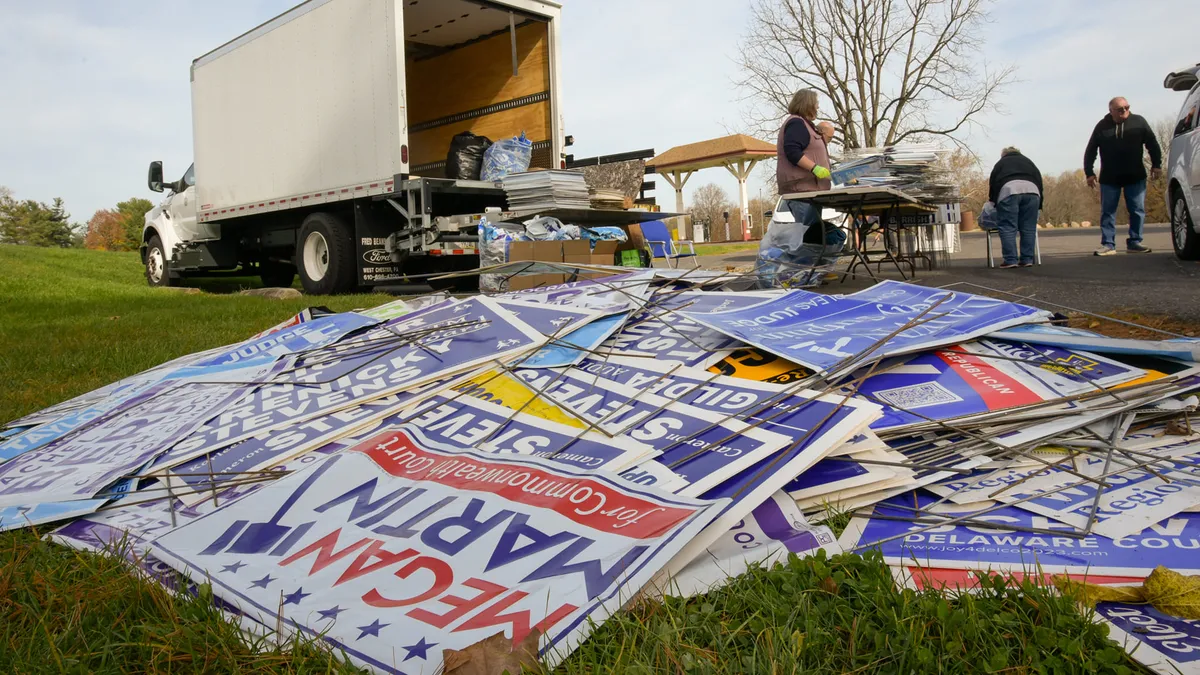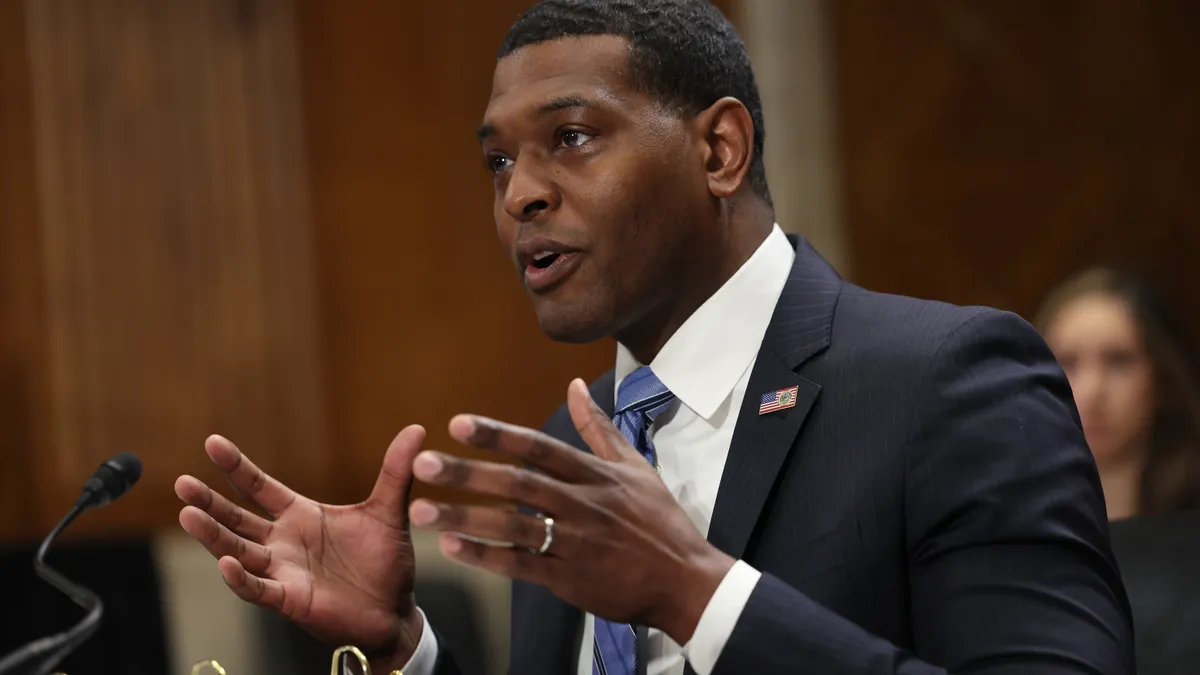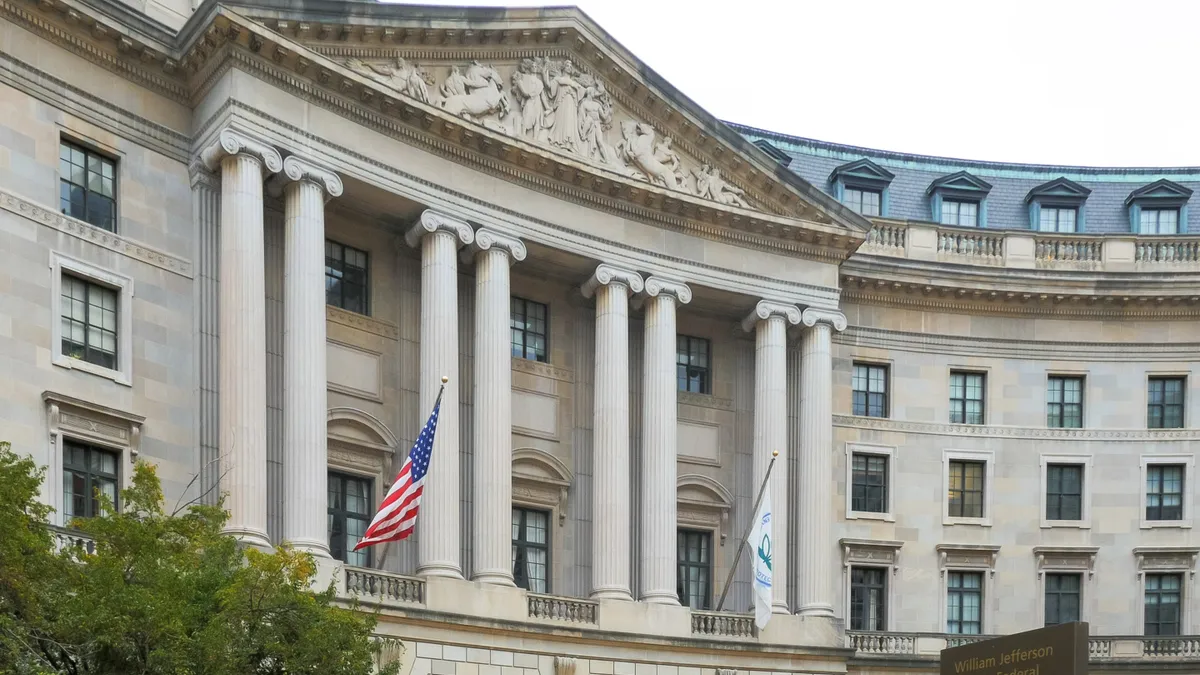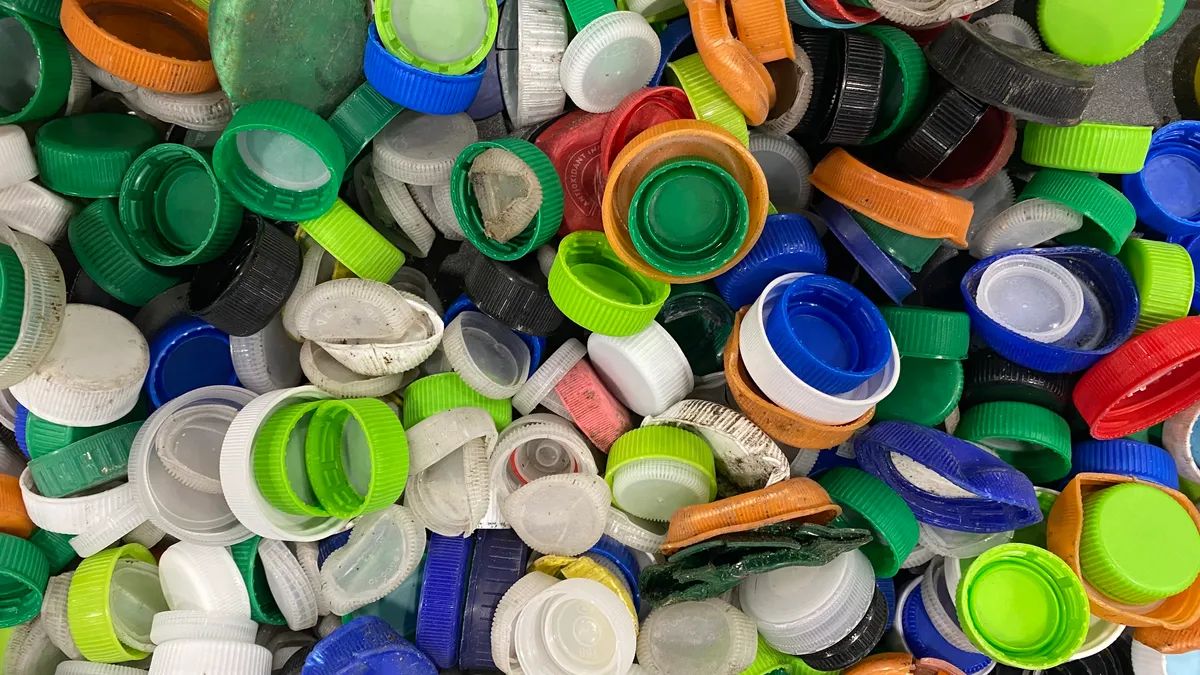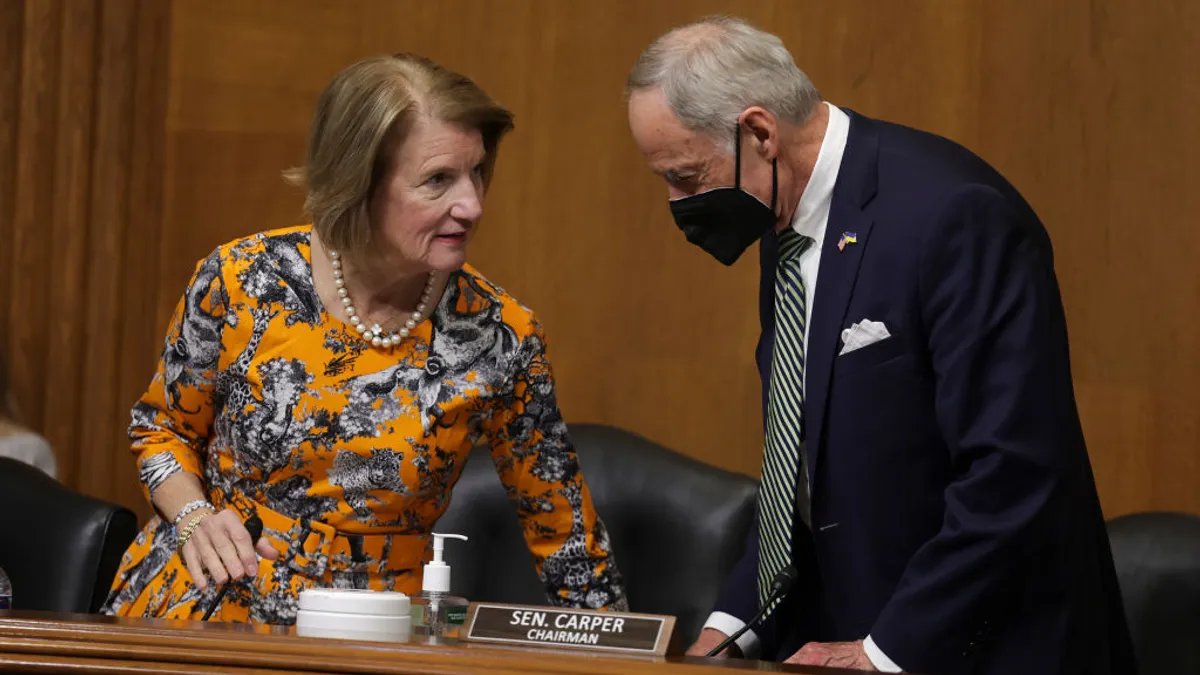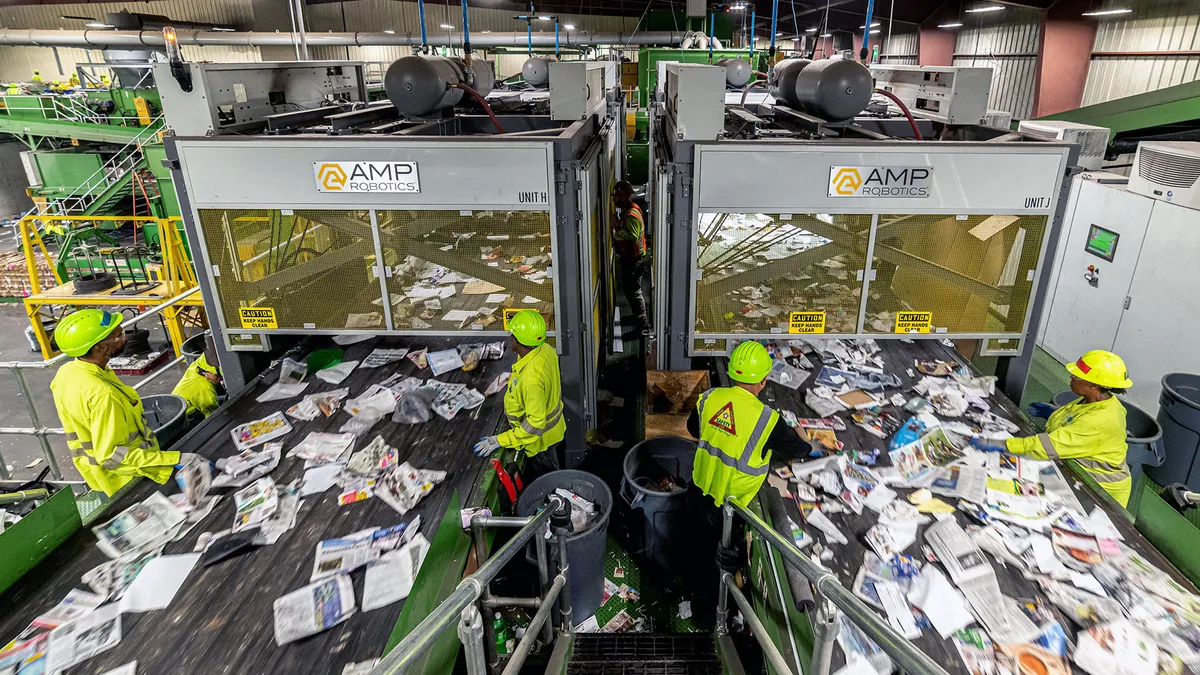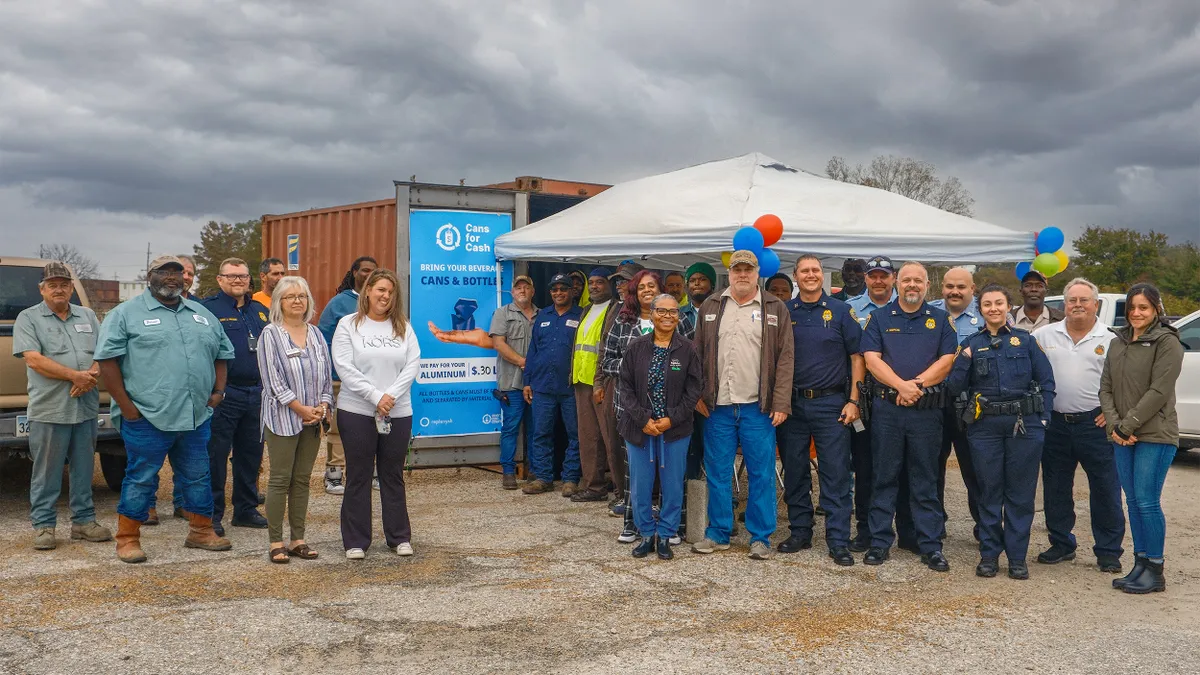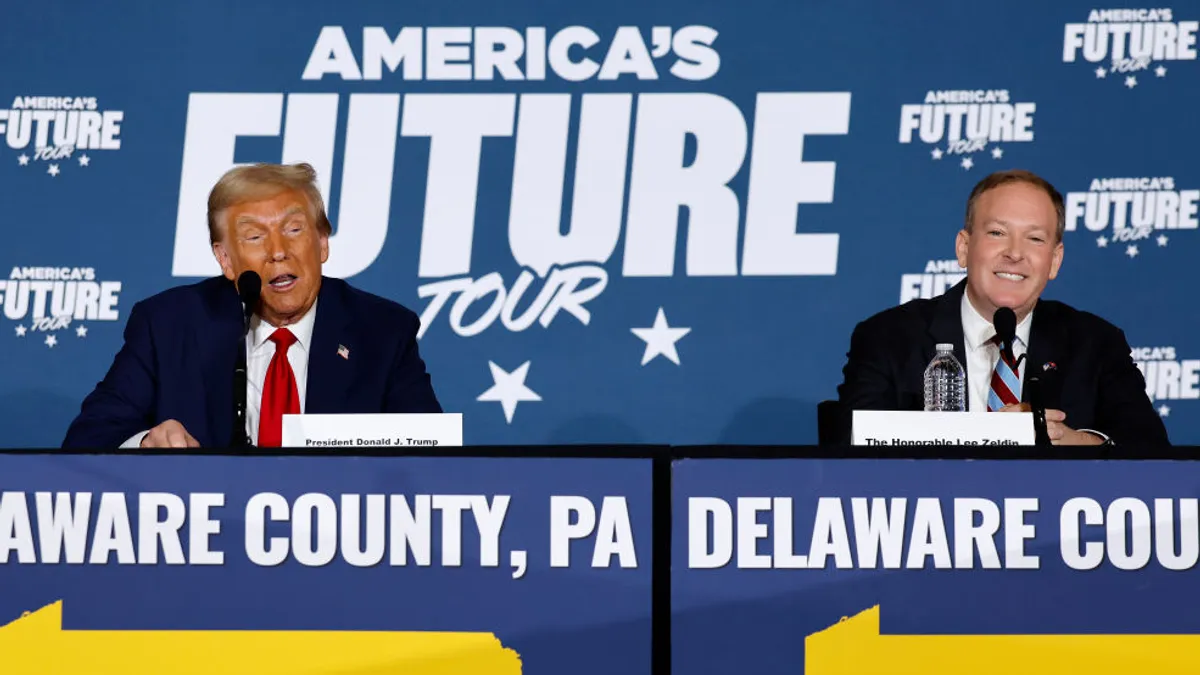Since it was founded more than 100 years ago, Fomento de Construcciones y Contratas (FCC) — a Spain-based environmental services group — has expanded to include a wide range of services in more than a dozen countries worldwide. The company has built 200 recycling and treatment facilities and 10 waste-to-energy facilities that handle millions of tons of material per year. Since 2013, its U.S. subsidiary FCC Environmental Services has grown at a rapid pace.
Starting with a 2014 biosolids contract in Houston, FCC has picked up seven U.S. contracts in less than three years. This list includes collection contracts in two Florida counties and a major contract to build and operate a material recovery facility in Dallas, which has since led to three other recyclables processing contracts with local municipalities.
To learn more about FCC Environmental Services’ expansion and future plans, Waste Dive spoke to CEO Inigo Sanz.
WASTE DIVE: In 2015 when you were competing for your initial collection contract in Orange County, FL, there was some talk that FCC wasn't a viable option because the waste industry in Europe is too different from the U.S. Now that you've won that contract and been operating in the country for multiple years, have you noticed any major differences when it comes to recycling collection?
INIGO SANZ: In Europe you have daily collections in most of the cities because people live in apartments and they don't have the space to have a 96-gallon cart. You have maybe six or seven different carts because the separation of recyclables is total. You collect separately paper and cardboard from glass from metals from plastics from the rest of the stuff. And the cost of collection makes a big difference. In most of the cities here in the U.S., it would be impossible to have that many different carts to be collected, because the collection cost could be impossible. You add to that much higher distances.
In the U.S., mostly the states in the Sun Belt, yard waste is a big issue because mostly everybody lives in single houses. And the weather is much hotter and much [more] humid. You have more rain so you have a much higher amount of yard waste than in some of the countries in central and northern Europe. So that's another big difference too.
At the end of the day the important thing is that you can use your experience, the combination of the technical experience that you have together with the operational experience that we have through our American employees. [FCC] is known for being one of the most innovative companies with regards to collection and recycling. We were the first company to introduce in the world CNG trucks...automatic side-loaders, four-wheel gear trucks. So we're trying to apply our experience, together with the experience of our American crew, to make a good combination.
Why start collecting in Florida? What was appealing about that particular market as your first traditional collection contract in the U.S.?
SANZ: We were not really planning [for Florida to be] the first stop for us. We were selecting the contracts according to where we believed we could be competitive, we could be innovative. We bid for several contracts not only in Florida but many other states and it happened that the first one to be awarded was in Florida. We have already signed seven contracts in two years, which we are very proud of because no other European company has been awarded a solid waste contract in the U.S. without buying an American company. We are really proud of that.
"... No other European company has been awarded a solid waste contract in the U.S. without buying an American company. We are really proud of that."

Inigo Sanz
CEO, FCC Environmental Services
I would imagine the capital costs of new trucks and facilities would be a challenge. You basically had to start from scratch.
SANZ: Yes, absolutely. You need the size, you need the financial muscle to be able to invest. But our company is big. We have more than 15,000 trucks worldwide and more than 220 waste treatment facilities of all kinds — recycling, waste-to-energy, landfills, and other kind of facilities.
Prior to FCC Environmental Services bidding on [solid waste] collection contracts, FCC has ever had any other presence in the U.S.?
SANZ: We had a former business here in the U.S. that we started in 2008. This other business was more related to oil collection. Oil from cars, from dealerships. We had this business from 2008 to 2013 and we decided that we prefer to concentrate on our core business which is solid waste. So we sold that part of our business. We started bidding for solid waste contracts [at the end of 2013].
The Dallas MRF contract was a key turning point for your expansion. What was it about building a MRF that made the most sense rather than any of the other facilities FCC has experience with?
SANZ: The Dallas RFP was open for any company to provide new technology. It was a long contract, it was 15 years, with extensions up to another 10 years. The way the city prepared this bid was in a way that you were given the land to build your MRF ... So we thought it was a very good opportunity for us to start with. It is the fourth biggest metropolitan area in the country. You have 6.5 million people living in 50-60 miles around the facility. The location is exceptional. The MRF is just five miles [from] downtown, so it is the best spot to develop any kind of solid waste activity.
With commodity prices continuing to shift, both cities and companies have been looking for ways to shield themselves from risk in new contracts. Can you explain how the Dallas contract was negotiated and what that means for both FCC and the city?
SANZ: I believe the city of Dallas was really smart when preparing the documentation for the RFP because they understood that of course you cannot control the commodity prices, so the only thing you can do to be able to be competitive in a MRF is to build a big MRF. And they knew that the bigger the MRF, the more competitive it was going to be. So the way they prepared that RFP was in a way that you could build a facility for them but you could also receive flow from other cities in the vicinity. So this is why we decided it was a good opportunity for us. We already have flows from three cities beside the city of Dallas today and the more volume you have the better for you to compete with the uncertainty of the commodity prices for the next years.
With the understanding that the facility just opened in January, what would you say is one of the more challenging materials you've been receiving so far? Either in terms of tough on your equipment or tough on pricing.
SANZ: We are really happy with how the equipment is working and processing all of the materials. And we are getting very, very good qualities. We are surprising our buyers about the quality that they are getting.
Obviously, the most challenging material, not for us but any other doing this business, is glass. But we are also proud to notice that we are getting a very good quality of glass and also all our glass buyers are very happy with our supply ... So even though our qualities are really good now compared to the qualities that similar facilities in the U.S. are getting we still believe that we have some room for improvement.
Texas has been looking for new ways to improve recycling activity lately and there seems to be more potential for material recovery. What are your plans for growth in the state?
SANZ: We have our headquarters in Houston. So we feel this is our home. We will try to develop more facilities, more recycling facilities, more collection contracts in Texas. But not only in Texas. I would say that we are focusing on the entire Sun Belt. So we will also try to bid and be successful in more contracts in the states around Texas — Louisiana, Arkansas, Oklahoma, New Mexico, Mississippi, more contracts in Florida, Georgia is possible. So we are not limited just to the states in which we are performing services today.
Do you have any preference on more urban versus suburban markets? Based on your experience in Europe do you think there is anything new you could bring to urban markets?
SANZ: We are not going to bid for a $1 million per year [contract] in any city which we don't have any other business around. So we need a minimum size for any contract. But that being said, any city of the U.S. that would be of average size is interesting for us. And in these kind of places we do have a lot of technology and innovations to be introduced in order to make service better, more efficient, increase the recycling rate and improve the collection route. This is what we're trying to develop anywhere where we make any kind of proposals. Innovation is one of our most important areas in which we can distinguish our company from other ones.
"I mean, innovation is one of our most important areas in which we can distinguish our company from other ones."

Inigo Sanz
CEO, FCC Environmental Services
Do you see the potential to bring that innovation to any other sectors such as organics processing or waste-to-energy in the U.S.?
SANZ: Yes, why not? But this is something that we cannot force. We are not technology [prescribers]. We prepare tailor-made proposals according to the city needs. Some cities in some areas do concentrate more on pricing ... Other cities, other areas of the country go farther and prefer to have more innovative systems. So we are just trying to prepare the best possible offer with the largest amount of innovation, but according to the needs of the city.
Coming back to the European waste industry, where landfill taxes are a driving factor, are there any lessons you think the U.S. waste industry could take to help boost diversion on a national level?
SANZ: The theory is that the average landfill fee in the [U.S.] is around $50 dollars per ton. But this is not all across the board. You have some states in which they pay $60-65, even $70 or $80 and some others in which they just pay $15. In those states in which the landfill fee is so cheap it is almost impossible for recycling to compete, because it takes much more money to process and to recycle.
This also happened in Europe years ago. So they realized that unless they could help the recycling industry to grow by implementing a landfill tax it was going to be impossible to recycle and to be sustainable and to keep the resources in the country. I know it's difficult ... but I believe that there should be a plan to implement these kinds of landfill taxes, mostly in those states in which they have cheap landfill fees, because if they don't do that it is going to be very difficult to compete. When the commodity prices are very high, it's easy to compete. But this changes from year to year, so if you want to do long-term investments you need some kind of certainty in the way you can compete with other alternative methods.
Supporting the idea of a state or national landfill tax is unpopular with many in the U.S. waste industry, in part because many companies also have landfills as a core part of their business.
SANZ: I mean we are not against landfills. We do have landfills. Landfills are needed for a certain percentage of the waste. But the thing is that if you want to recover the paper, the cardboard, the plastic, the glass, you don't want to put that in the landfills ... If you don't have any other incentive for the cities or for the counties to recycle, it simply happens that the economics of the business drives the recyclables to the landfill.
What are the priorities for FCC Environmental Services in the year ahead?
SANZ: We are just trying to provide good service to cities and counties. We are currently providing service to 4 million Americans. We are looking forward to increasing our services and business and bringing new innovations and more efficiencies and helping this country to be more effective and more sustainable.



